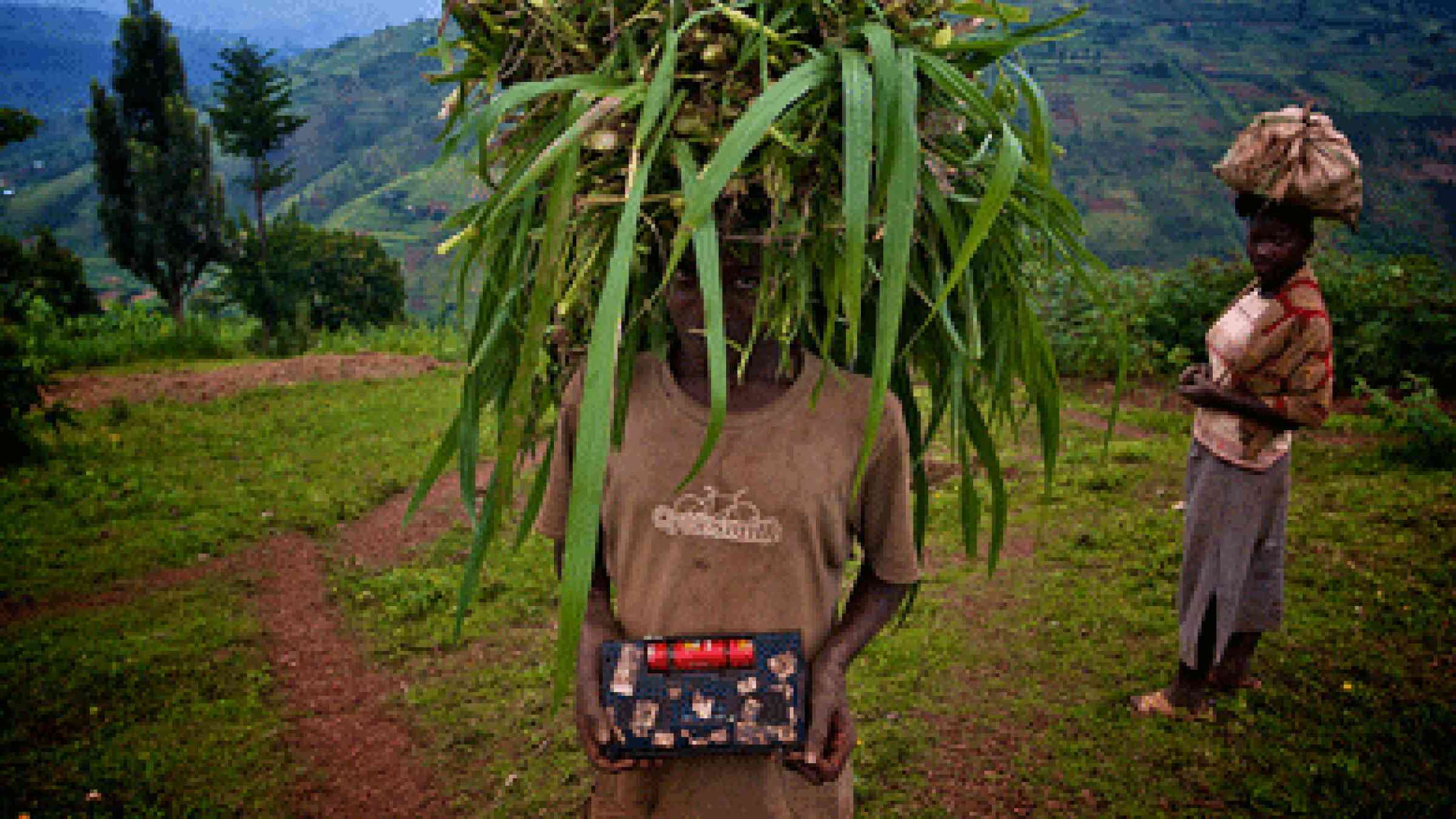Better communication leads to safer communities in Rwanda and Burundi

By Sharon Reader, IFRC
The power of cinema and radio are being used in Rwanda and Burundi to improve health, resilience and communication with vulnerable communities.
Red Cross National Societies in both countries are now using live radio programmes and touring mobile cinemas to provide vital information to communities on how to prevent diseases like malaria and cholera, and how to prepare for disasters. The activities also encourage feedback and participation from communities, giving valuable insight into the challenges people face and how the Red Cross can better help them.
In Rwanda, five Red Cross branches in Huye, Ngoma, Kamonyi, Karongi and Rubavu are broadcasting monthly one-hour live radio chat shows. The shows are educating people on a wide range of topics including malaria prevention, hygiene and sanitation, nutrition, and disaster risk reduction. As well as Red Cross experts, guests include local health and government representatives. Together, the five regional shows reach 80 per cent of the country and are proving popular with the audience – since late November 2013, 20 live shows have been broadcast and 160 calls and SMS have been answered live on air.
In Burundi, a weekly radio show is broadcast across two national radio stations. The show combines interviews with health and disaster management experts, with live audience call-ins and participation. The programme addresses sensitive subjects such as gender-based violence, bringing in experts in the field to discuss causes, impact and sources of help and support. To date, 22 radio shows have been broadcast across the country.
“These radio shows are proving crucial in reaching people with practical and useful information they can use to improve their health and well-being,” says Etienne Ndikuriyo, head of communications, Burundi Red Cross. “The speed of radio allows us to be closer to the population and the fact they can call in on toll-free numbers and ask questions makes it interactive and gives a voice to our listeners.”
Both National Societies in Rwanda and Burundi are also using mobile cinema as a means of community mobilization and education. The cinema is an interactive activity that uses film and community debate to engage people in learning about safe practices.
In Burundi, four districts of Bujumbura Mairie, Bujumbura Rural, Cibitoke and Bururi have been delivering mobile cinemas two to three times per month with a focus on cholera prevention. The cinema was also a key tool in the Red Cross response following devastating floods in the capital in February, when it was used to help prevent outbreaks of water borne diseases amongst displaced people. To date, nearly 10,000 people have attended a Burundi Red Cross mobile cinema show.
In Rwanda, three districts of Gisagara, Kayonza and Kamonyi are running mobile cinema two times per month with a focus on hygiene promotion or malaria. The activity has proven popular with both volunteers and community members, who say the cinema is a more fun, interesting and exciting way to give and receive health information. Close to 2,000 people have attended a Rwanda Red Cross cinema show since its launch last year.
“Peoples’ reactions have been great. Nobody likes to be lectured, but with cinema everyone gets a chance to be involved and participate in the show – and it’s a chance for us to find out what they think and their level of knowledge,” says Yvonne Kabagire, head of communications, Rwanda Red Cross. “It’s so easy for people to grasp the information. After all, seeing is believing!”
In 2014, the radio broadcasts and mobile cinema will be expanded into new districts, reaching thousands of people in Burundi and Rwanda each month, ensuring communities have the knowledge they need to stay safe and healthy, as well as providing a channel to feedback critical information to the Red Cross about their problems and needs. The project is funded and supported by the Norwegian Red Cross Society and the International Federation of Red Cross and Red Crescent Societies.